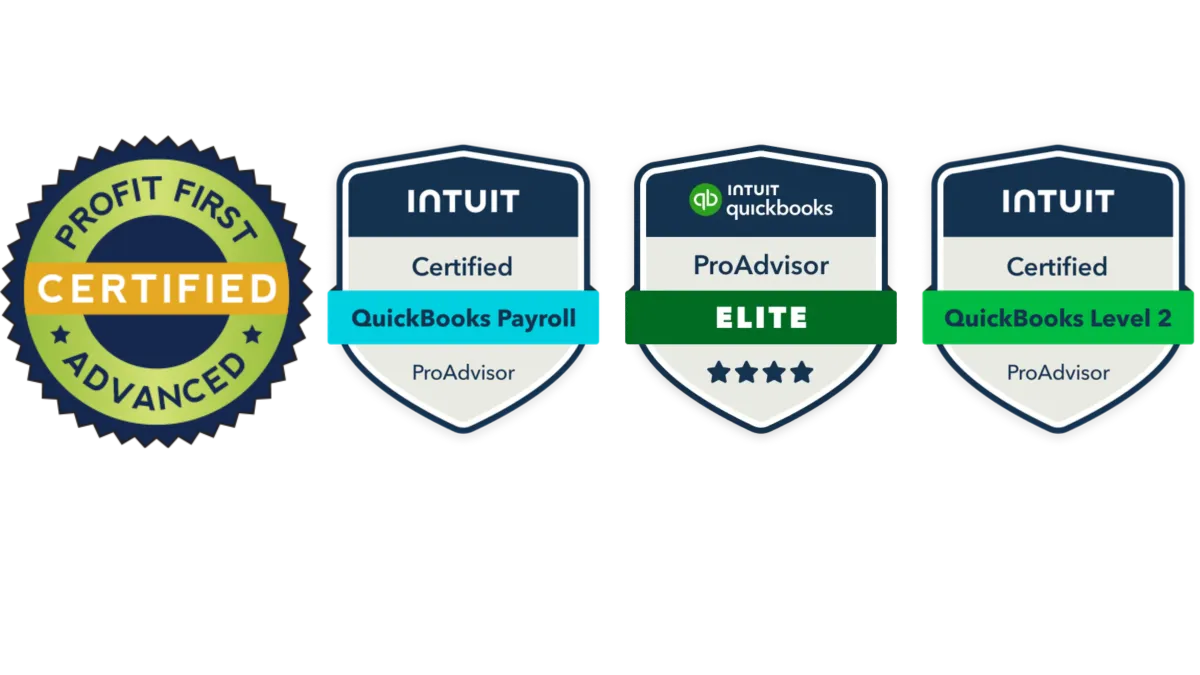Blog
Resources and Information to Help Your Business

Demystifying Business Taxes: A Simple Guide for Contractors and Small Business Owners
Demystifying Business Taxes: A Simple Guide for Contractors and Small Business Owners
Understanding business taxes can often feel like unraveling a complex puzzle, especially for contractors and small business owners. However, gaining clarity on this crucial aspect of financial management is essential for ensuring compliance and maximizing potential savings. By familiarizing yourself with effective tax strategies and recognizing the unique tax obligations that come with operating a business, you can navigate the tax landscape with greater confidence. This guide aims to demystify business taxes, offering straightforward insights and practical tips tailored to contractors and small business owners, helping you manage your business taxes more efficiently.

Understanding Business Taxes
Common Types of Business Taxes
There are several types of business taxes that contractors and small business owners need to be aware of. Firstly, Income Tax is levied on the profits generated by your business. Depending on your business structure, this could be a corporate tax or a personal income tax. Next, Self-Employment Tax applies if you’re self-employed, covering Social Security and Medicare taxes. Additionally, Employment Taxes are crucial if you have employees; these include Social Security, Medicare, and federal income tax withholding. Sales Tax is another common tax, applicable if you sell goods and services. Finally, Property Tax may be relevant if your business owns real estate. Understanding these various taxes helps ensure compliance and aids in effective financial planning.

Tax Deadlines and Filing Requirements
Knowing the key tax deadlines and filing requirements is crucial for avoiding penalties and interest charges. For most businesses, income tax returns are due by March 15th if you’re an S corporation or a partnership, and April 15th for sole proprietors and C corporations. If you can’t meet these deadlines, you can file for an extension, typically granting an additional six months. Estimated quarterly taxes are another essential aspect, with due dates on April 15th, June 15th, September 15th, and January 15th of the following year. Additionally, self-employed individuals must file self-employment taxes annually. For those with employees, payroll taxes must be deposited according to your deposit schedule, either monthly or semi-weekly. Keeping track of these dates ensures you remain compliant and avoid unnecessary financial pitfalls.

Importance of Accurate Record-Keeping
Accurate record-keeping is the foundation of effective tax management for any business. Maintaining detailed and organized financial records allows you to track income, expenses, and deductions accurately. This practice is crucial for preparing precise tax returns and can save you money by identifying all possible deductions. Additionally, well-kept records serve as evidence in case of an audit by the IRS. It’s essential to keep receipts, invoices, bank statements, and payroll records. Digital tools and accounting software can simplify this process by automating record-keeping and reducing errors. Ultimately, meticulous record-keeping not only ensures compliance with tax laws but also provides a clearer picture of your business’s financial health, enabling better decision-making and strategic planning.

Top Tax Strategies for Contractors
Deducting Business Expenses
One of the most effective tax strategies for contractors is deducting business expenses. Deductible expenses can significantly reduce your taxable income, leading to substantial tax savings. Common deductible expenses include office supplies, travel costs, and even a portion of your home utilities if you use a home office. Additionally, tools and equipment necessary for your trade are deductible. For example, if you buy a new laptop specifically for business use, you can deduct its cost. Don’t overlook professional services like accounting and legal fees, which are also deductible. Keeping detailed records of these expenses, including receipts and invoices, is crucial for substantiating your claims. This practice not only ensures compliance with IRS regulations but also maximizes your deductions, helping you retain more of your hard-earned money.

Maximizing Home Office Deductions
Maximizing home office deductions can be a valuable tax strategy for contractors who work from home. To qualify for this deduction, your home office must be used exclusively and regularly for business purposes. This space doesn’t necessarily have to be a separate room, but it should be a clearly defined area. You can deduct a portion of your mortgage interest, rent, utilities, and home insurance based on the percentage of your home that is used for business. There are two methods to calculate this deduction: the simplified option and the regular method. The simplified option allows a standard deduction of $5 per square foot of your home office, up to 300 square feet. The regular method involves calculating the actual expenses and the percentage of your home used for business. Choosing the right method and maintaining accurate records can help you maximize your home office deductions and reduce your taxable income.

Utilizing Vehicle Expenses
Utilizing vehicle expenses is another effective tax strategy for contractors who frequently use their vehicles for business purposes. You can deduct either the standard mileage rate or actual vehicle expenses. The standard mileage rate allows you to deduct a set amount per mile driven for business, which simplifies record-keeping. For 2023, the rate is 65.5 cents per mile. Alternatively, the actual expense method lets you deduct the actual costs of operating your vehicle, such as gas, repairs, insurance, and depreciation. To maximize deductions, you must log business miles accurately, keeping a detailed mileage log that includes the date, purpose, and distance of each trip. Additionally, parking fees and tolls incurred during business travel are also deductible. By choosing the method that offers the highest deduction and maintaining meticulous records, you can significantly reduce your taxable income through vehicle expense deductions.

Strategies for Small Business Owners
Setting Up a Board of Directors
Setting up a board of directors can provide small business owners with invaluable guidance and oversight. A board can bring diverse perspectives and expertise, helping you make informed decisions and steer your business toward growth. When selecting board members, consider individuals with skills that complement your business needs—such as finance, marketing, and industry-specific experience. An effective board will not only offer strategic advice but also hold you accountable, ensuring that you stay focused on long-term goals. Regular meetings with the board provide opportunities to discuss challenges, brainstorm solutions, and evaluate business performance. Additionally, a well-composed board can enhance your business’s credibility, making it more attractive to investors and lenders. Overall, establishing a board of directors can be a strategic move that supports sustainable growth and robust governance for your small business.

Hiring Family Members
Hiring family members can be a strategic move for small business owners, offering both financial and operational benefits. Employing relatives may allow you to leverage trust and a deep understanding of your business values and goals. From a tax perspective, wages paid to family members are deductible business expenses, which can lower your taxable income. However, it’s crucial to ensure that hiring decisions are based on skills and qualifications to avoid potential conflicts and maintain professionalism. Additionally, family members must adhere to the same employment standards and performance expectations as other employees. Proper documentation, including employment agreements and timekeeping records, is essential to comply with IRS regulations and avoid scrutiny. While hiring family members can strengthen your business, it’s important to manage it thoughtfully to ensure it benefits both the business and your personal relationships.

Retirement Plans and Tax Advantages
Setting up retirement plans for yourself and your employees can provide significant tax advantages for small business owners. Options like a Simplified Employee Pension (SEP) IRA, Solo 401(k), or SIMPLE IRA allow you to save for retirement while reducing your taxable income. Contributions to these plans are typically tax-deductible, lowering your overall tax liability. Additionally, offering retirement benefits can attract and retain talented employees, adding value to your business. It’s important to understand the specific contribution limits and requirements for each type of plan. For example, a SEP IRA allows contributions of up to 25% of an employee’s compensation, while a Solo 401(k) offers more flexibility in contributions. Consulting with a financial advisor can help you choose the best retirement plan for your business needs. By strategically utilizing retirement plans, you not only secure your financial future but also benefit from immediate tax savings.

Navigating Tax Deductions
Travel and Entertainment Deductions
Travel and entertainment deductions can be valuable for business owners, but it’s crucial to understand the rules to maximize benefits while staying compliant. Travel expenses such as airfare, lodging, meals, and transportation can be deducted if the trip is primarily for business purposes. Keep detailed records, including receipts and the business purpose of each expense, to substantiate your claims. For entertainment expenses, the IRS has tightened restrictions, and most entertainment costs are no longer deductible. However, meals during business travel are still partially deductible, typically at 50%. Business meals with clients or prospects are also deductible if they are directly related to your business operations. To claim these deductions, ensure that the expenses are ordinary and necessary for your business. Accurate documentation and adherence to IRS guidelines are key to successfully navigating travel and entertainment deductions, ultimately reducing your taxable income.

Health Insurance Write-Offs
Health insurance write-offs can significantly reduce the tax burden for self-employed individuals and small business owners. If you pay for your health insurance, you may be eligible to deduct the premiums as an adjustment to income on your tax return. This deduction is available whether or not you itemize deductions. Additionally, premiums paid for your spouse, dependents, and any children under 27 years old can also be written off. It’s important to note that the deduction is limited to the earned income from the business under which the health insurance plan is established. To claim this deduction, maintain detailed records of all premium payments and ensure the policy is in the name of your business. By taking advantage of health insurance write-offs, you can lower your taxable income, making healthcare costs more manageable while staying compliant with IRS regulations.

Depreciation Methods
Understanding depreciation methods is crucial for maximizing tax deductions on business assets that lose value over time. Depreciation allows you to spread the cost of an asset, such as equipment, vehicles, or buildings, over its useful life. The IRS offers several methods for calculating depreciation. The Straight-Line Method divides the asset’s cost evenly over its useful life, providing a consistent annual deduction. The Modified Accelerated Cost Recovery System (MACRS) is more complex but often results in higher deductions in the earlier years of the asset’s life, which can be beneficial for businesses looking to offset initial costs. Another option is Section 179 Expensing, which allows you to deduct the full cost of certain qualifying assets in the year of purchase, subject to limits. Choosing the right depreciation method depends on your business’s financial strategy and tax situation. Properly applying these methods ensures compliance and maximizes your tax benefits.

Advanced Tax Planning
Tax Implications of Business Structure
The tax implications of your business structure are a critical consideration in advanced tax planning. The type of entity you choose—such as a sole proprietorship, partnership, Limited Liability Company (LLC), S corporation, or C corporation—affects how your business is taxed. For instance, sole proprietorships and partnerships pass income directly to the owners, who then report it on their personal tax returns. This means profits are subject to self-employment taxes. An LLC can choose to be taxed as a sole proprietorship, partnership, or corporation, offering flexibility in tax planning. S corporations allow income to pass through to shareholders, avoiding double taxation, while owners can also draw salaries that are subject to payroll taxes. In contrast, C corporations face double taxation, where the company’s profits are taxed, and dividends paid to shareholders are taxed again on their personal returns. Understanding these implications helps you choose the structure that aligns with your financial goals and tax strategy.

Tax Deferral Strategies
Tax deferral strategies can be powerful tools in advanced tax planning, allowing you to delay the payment of taxes to a future period. One common method is contributing to retirement accounts like a 401(k) or an IRA, where contributions are made pre-tax, reducing your current taxable income. Another strategy involves the use of deferred compensation plans, where a portion of an employee’s income is paid out at a later date, typically during retirement when they might be in a lower tax bracket. Additionally, installment sales can spread out the recognition of income over several years, easing the immediate tax burden. Like-kind exchanges, often used in real estate, allow you to defer capital gains taxes by reinvesting the proceeds from a sold property into a similar property. Implementing these tax deferral strategies effectively can improve your cash flow and provide more flexibility in managing your financial obligations.

Leveraging Tax Credits
Leveraging tax credits is an effective strategy in advanced tax planning to directly reduce your tax liability. Unlike deductions, which lower your taxable income, tax credits provide a dollar-for-dollar reduction in the amount of tax you owe. There are several types of tax credits available to small business owners. For example, the Research and Development (RD) Tax Credit offers incentives for businesses that invest in innovation and development. The Work Opportunity Tax Credit (WOTC) encourages businesses to hire individuals from targeted groups who face employment barriers. Additionally, the Small Business Health Care Tax Credit helps small businesses afford the cost of providing health insurance to their employees. To maximize these benefits, it’s essential to stay informed about available credits and maintain accurate documentation to support your claims. By effectively leveraging tax credits, you can significantly reduce your overall tax burden and reinvest those savings into your business.

Partner With Us Today!
Schedule a 30 minute, no cost, no commitment consultation today. Let's see if it makes sense to work together.
DISCOVER the 10 BIGGEST Financial Mistakes Contractors Make and What You Can Do to Fix Them Today
2023 All Rights Reserved.



